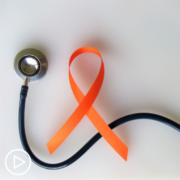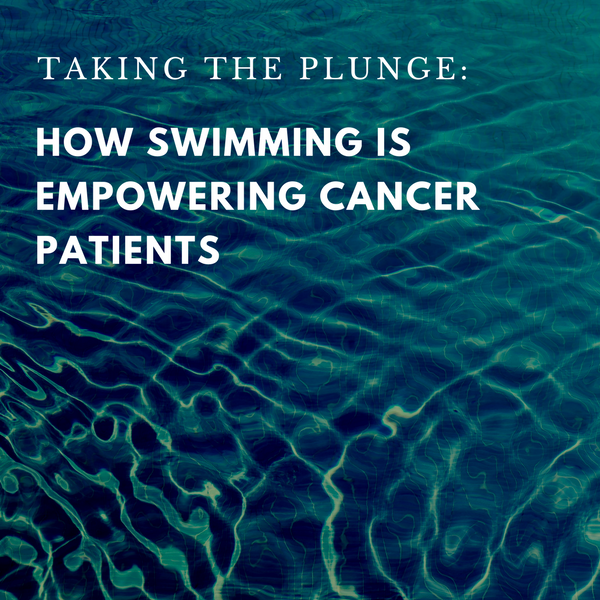How Can I Manage Anxiety After Follicular Lymphoma Diagnosis?
How Can I Manage Anxiety After Follicular Lymphoma Diagnosis? from Patient Empowerment Network on Vimeo.
How can follicular lymphoma patients manage anxiety after diagnosis? Cancer patient Lisa Hatfield and expert Dr. Tycel Phillips from City of Hope discuss the experience of watch and wait and advice for coping with anxiety and being proactive in your care.
See More from START HERE Follicular Lymphoma
Related Resources:

|

|

|
Transcript:
Dr. Tycel Philllips:
It’s really about some patients are very uncomfortable being watched with an active cancer. And so, in that situation, that’s probably the biggest discrepancy we have nowadays. Because of the anxiety of the watch and wait approach. Some patients would like treatment right away, irrespective of whether they need it or not. So, you’ll sometimes get discrepancies with our patients about that.
Lisa Hatfield:
The clip you just heard was Dr. Tycel Phillips from the University of Michigan Rogel Cancer Center, who explained how if follicular lymphoma patients are feeling anxious about being in the watch and wait period (aka not starting treatment), they may go seek a second opinion, which is perfectly fine and even encouraged by physicians.
However, even during the watch and wait period, there are still things you can do to improve your health and well-being. Taking control of what you can control may help you feel less anxious. Here are some tips:
- Learn as much as you can about your diagnosis. Know the signs or symptoms that may mean it’s time to start treatment and stay up to date about the latest treatment advancements.
- Establish a relationship with a hematologist-oncologist specializing in your diagnosis. Proactively becoming a patient under their care ensures that, if treatment becomes necessary, you’ll already have a healthcare professional familiar with your case andis updated on the newest available treatments. This specialist does not need to be the same doctor overseeing you in watch and watch.
- Attend all doctor appointments, even if you are feeling well. Some patients may stay stable for years before symptoms or disease progression makes treatment necessary. If you notice changes at any time, don’t wait to reach out to your healthcare team.
- Maintain health insurance coverage, if at all possible. If you do need to begin treatment, you will need health insurance to help cover the cost. Even during watch and wait, regular appointments and testing can add up without health insurance coverage.
- Improve your overall well-being with nutrition, exercise, and other good health practices, such as not smoking and moderating your alcohol intake. This approach positions you to tolerate treatment more effectively when the time comes, minimizing the risk of serious treatment complications.
- Prioritize your mental health. Consider joining a support group or talk with a fellow watch and wait patient to help you work through your feelings and answer questions. If feelings of anxiety or depression begin to interfere with your daily activities, ask your healthcare team for a referral to a mental health professional.
These tips can be useful to you during the watch and wait period as they allow you to keep moving forward and be proactive!
Sources:
- https://powerfulpatients.org/2022/03/01/follicular-lymphoma-treatment-decisions-whats-right-for-you/
- https://www.lls.org/treatment/types-treatment/watch-and-wait










